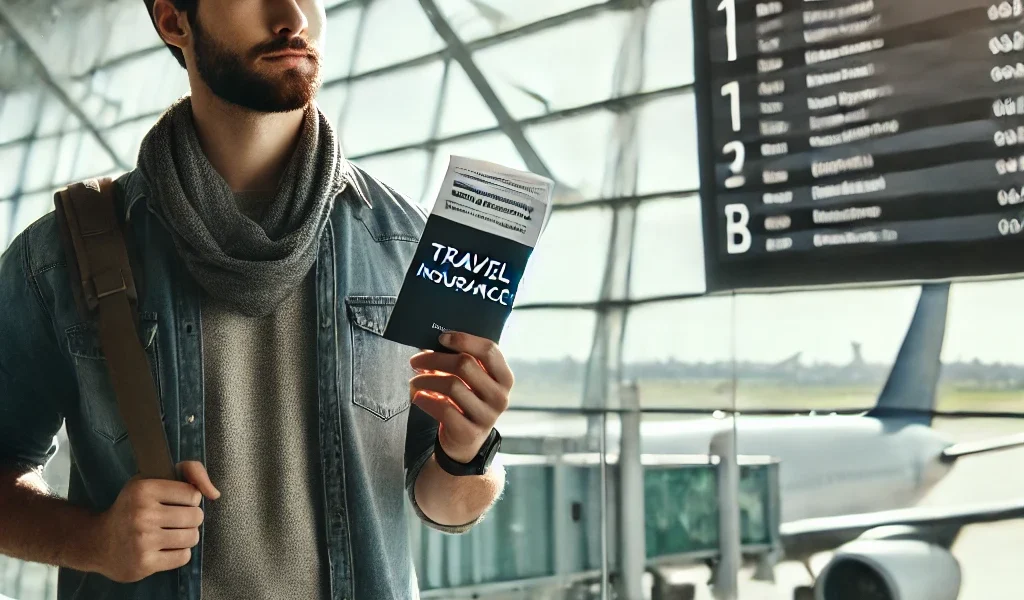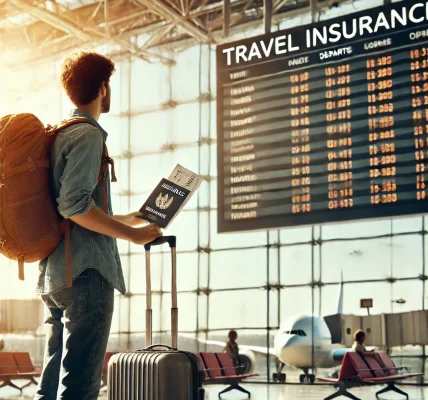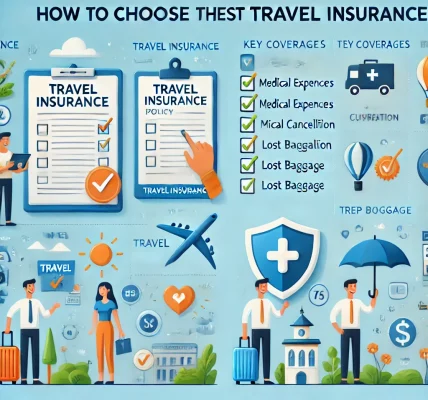Introduction
Traveling solo is an exciting adventure filled with opportunities for self-discovery, cultural immersion, and freedom. However, it also comes with unique risks and responsibilities. Without a travel companion to assist in emergencies, having the right travel insurance is crucial for solo travelers. In this guide, we’ll walk you through the key factors to consider when choosing the best travel insurance for solo trips, ensuring a safe and worry-free journey.
Why Travel Insurance is Essential for Solo Travelers
Unlike group travelers who can rely on companions in emergencies, solo travelers must be prepared to handle unforeseen situations on their own. Here’s why travel insurance is a must-have:
- Medical Emergencies: Covers hospitalization, doctor visits, and emergency medical evacuation.
- Trip Cancellations or Interruptions: Reimburses non-refundable travel expenses if your trip is canceled due to unforeseen events.
- Lost or Stolen Belongings: Provides compensation for stolen or lost luggage, passport, and valuables.
- Flight Delays or Cancellations: Covers unexpected travel disruptions and additional accommodation expenses.
- Emergency Assistance: Offers 24/7 access to emergency support and translation services.
Key Features to Look for in Travel Insurance for Solo Travelers
When selecting travel insurance, it’s essential to compare plans based on your travel style, destination, and potential risks. Here are the key features to prioritize:
1. Comprehensive Medical Coverage
Health emergencies can happen anywhere, and medical costs abroad can be high. Look for a policy that includes:
- Emergency medical expenses (doctor visits, hospital stays, and prescriptions)
- Medical evacuation and repatriation (transport to your home country if needed)
- Coverage for pre-existing conditions (if applicable, check for exclusions)
2. Trip Cancellation and Interruption Protection
Unforeseen events such as illness, family emergencies, or travel restrictions can force you to cancel your trip. Choose a policy that covers:
- Trip cancellations due to illness or injury
- Unexpected family emergencies
- Natural disasters or political unrest at your destination
3. Lost, Stolen, or Delayed Baggage Coverage
Losing your belongings can be a nightmare when traveling solo. Your travel insurance should provide:
- Compensation for lost, stolen, or damaged baggage
- Coverage for essential items in case of baggage delays
- Reimbursement for lost travel documents such as passports
4. Personal Liability Protection
If you accidentally cause damage to property or injury to someone else, personal liability coverage ensures you won’t face financial burdens.
5. Adventure and Activity Coverage
Solo travelers often seek adventure activities like hiking, scuba diving, or skiing. If you plan on engaging in high-risk activities, ensure your insurance covers:
- Extreme sports and outdoor adventures
- Medical evacuation from remote areas
- Accidents or injuries related to specific activities
6. 24/7 Emergency Assistance
Having round-the-clock assistance is crucial when traveling alone. Your policy should include:
- 24/7 access to a travel assistance hotline
- Language translation services
- Emergency cash advances
7. Cancel for Any Reason (CFAR) Option
Some insurance providers offer Cancel for Any Reason (CFAR) coverage, allowing you to cancel your trip for personal reasons and still receive partial reimbursement.
How to Choose the Right Travel Insurance Plan
Step 1: Assess Your Travel Needs
Consider the following factors before purchasing a plan:
- Destination: Check if healthcare costs are high or if there are safety concerns.
- Trip Length: Longer trips may require extended coverage.
- Activities: Choose coverage that includes your planned activities.
- Budget: Balance affordability with comprehensive protection.
Step 2: Compare Insurance Providers
Not all travel insurance plans are created equal. Use comparison websites to evaluate:
- Policy coverage limits
- Exclusions and restrictions
- Customer reviews and claim settlement records
Step 3: Read the Fine Print
Carefully read the policy terms to understand:
- Coverage limits (maximum claim amounts for medical, baggage, trip cancellations)
- Exclusions (activities or conditions not covered)
- Deductibles (the amount you pay before insurance kicks in)
Step 4: Purchase Insurance Early
Buying insurance immediately after booking your trip ensures you’re protected from last-minute cancellations.
Common Mistakes Solo Travelers Should Avoid
- Choosing the Cheapest Plan Without Checking Coverage – Inadequate coverage can leave you vulnerable in emergencies.
- Ignoring Exclusions – Always read what’s NOT covered.
- Delaying Insurance Purchase – Buying late may limit coverage options.
- Not Keeping Emergency Contacts Handy – Save your insurance provider’s contact details.
- Forgetting to Declare Pre-Existing Medical Conditions – Non-disclosure may result in denied claims.
Best Travel Insurance Providers for Solo Travelers
Some of the most trusted travel insurance companies offering excellent coverage for solo travelers include:
- World Nomads – Ideal for adventure travelers and backpackers
- Allianz Travel Insurance – Offers comprehensive global coverage
- SafetyWing – Best for digital nomads and long-term travelers
- AXA Assistance USA – Known for 24/7 emergency assistance
- Travelex Insurance Services – Provides customizable plans
Conclusion
Solo travel is a thrilling experience, but it’s essential to have the right safety net in place. Choosing the best travel insurance ensures you’re protected against medical emergencies, trip cancellations, lost belongings, and other unexpected situations. By carefully selecting a plan based on your needs, you can enjoy a worry-free journey and focus on making unforgettable memories.




